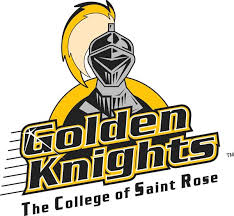By ABIGAIL GUENTHER
Staff Writer
Saint Rose journalists are entering 2020 armed with demands for free speech and free press. Instead of being demonized or dismissed, the journalists at Saint Rose are prepared to defend their rights.
On Friday Jan. 24, The Chronicle is hosting a panel discussion in preparation for Student Press Freedom Day, a national day of celebration for the work of student journalists and their right to free speech without repercussion.
The event takes place in the Neil Hellman Library, from 5 to 7 p.m.
With the 2020 election on the horizon, access to information — to truth — is vital, not only for journalists, but for college students, and American citizens. More than ever, citizens need both a means and an understanding of the role of journalism in daily decision-making, and in the structure of both local and national institutions.
The panel discussion will address the consummation of right and responsibility of the American citizen and college student, as well as the production and consumption of media.
The panel will consist of former Chronicle editors Jackson Wang and Aileen Burke, current co-executive editor Emily Paolicelli, and Saint Rose professors Angela Ledford and Cailin Brown. Brown is the advisor to the Saint Rose Chronicle.
This event is more than a call to Saint Rose student journalists; it is for every student that consumes media, for every citizen, and for every voice. It is for students today and for students tomorrow.
Student Press Freedom Day is being celebrated by colleges and universities across the country on Jan. 29. The College of Saint Rose’s communications department has received the recognition of the Student Press Law Center (SPLC), who is fully funding the event, which will take place on Jan. 24 in preparation for the national holiday.
In an interview, Brown stressed the importance of understanding the first amendment. Censorship of the press is an institutional problem, and it echoes a national attitude that journalists are the enemy of the people, seeking fame instead of truth.
“Journalism isn’t about getting famous,” said Brown. “It’s about serving democracy and providing citizens with the information they need to make informed decisions about how to lead their lives.”
The Chronicle is working in collaboration with Drew Urbanek, who provided the library’s space for the event. Urbanek, who is the library director, sought to collaborate when he read a Chronicle article on information access in December.
“Clarity of information, especially the teaching side, is our wheelhouse,” said Urbanek in an interview. He represented the library as a proud and primary resource for student information access, with the goal of teaching students how to discover facts.
On a national landscape, journalism is being delegitimized, Urbanek said, with government websites deleting climate change data and deceiving the average decision-maker. At this event, The Chronicle seeks to bring a national issue to the students.
The event is not a lecture, but a panel of informed and passionate individuals directing a conversation for the student body in attendance. Anyone who wishes to speak will be heard; that is the goal of the journalist, and will be the backbone of the Student Press Freedom Panel.
What’s unique about college students is that they are the subset of the American population that is actively pursuing information — not because they are mandated by law, but because they are free to do so.
For Communications major and prospective media producer Alexandra Mulligan, a student at the College of Saint Rose, free speech is essential to spreading truth.
“The processing of information,” Mulligan said in a text message, “is a conversation with people from all walks of life. Conversation…will be a catalyst to discover…your own beliefs and become an informed decision maker.”
The role of the college, then, is not to spoon-feed students world-views or algorithms for making decisions. It is to facilitate the discovery of the truth, and enable students to act in accordance to their discernments.
The role of the journalist is to dig up the truth, and to inform the public. For a private institution like Saint Rose, it is the student body that the journalist works for.
“Discovery happens by empowering students,” said Urbanek. From discovery, change is born.
Students have needs they need to be met, and have expectations to be filled, but they cannot facilitate change until they are informed about their current situation.
Before college students can promote change, they need to know the way things are, provided by authentic journalism. Engaged citizens require something to engage with.
The event on Jan. 24 will welcome all students and members of the community


